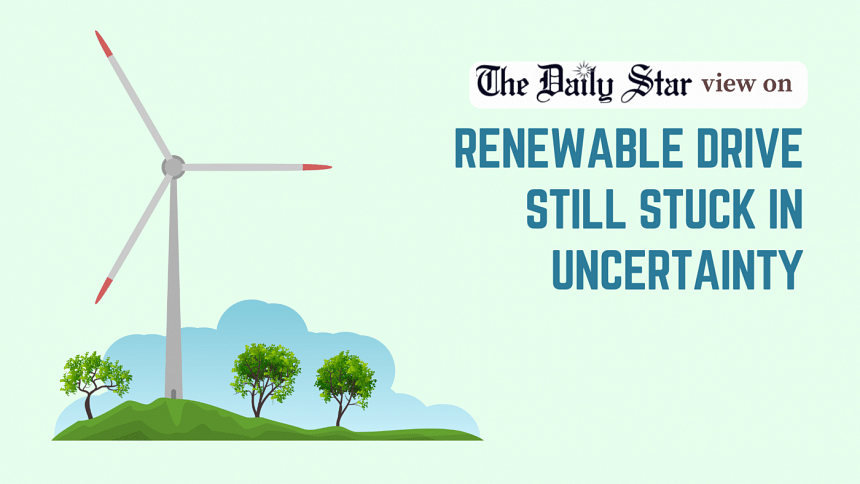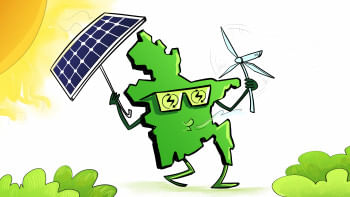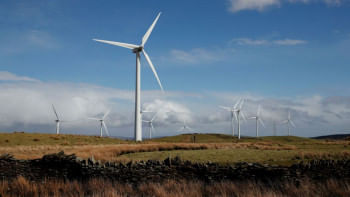Don't push renewable energy transition into the distant future

It is unfortunate that Bangladesh's power generation from renewable sources pales in comparison to its neighbours, despite our role as a climate change champion on the global stage. According to a recent report, only 0.8 percent of total power in Bangladesh comes from renewables—mainly wind and solar—whereas India, Pakistan, Sri Lanka, and Vietnam generate 11.5 percent, 3.7 percent, 10.8 percent, and 13.6 percent, respectively, from those two sustainable sources.
Bangladesh's transition to renewable energy has been slow, complicated, and hindered by contradictory policy decisions. Corruption and inefficiency plagued the country's entire energy sector during the last regime, and renewables were no exception. To partially fulfil her government's commitment to producing 6,000MW-16,000MW from renewable sources by 2030, former Prime Minister Sheikh Hasina approved 37 renewable plants, without following due process, under the controversial Quick Enhancement of Electricity and Energy Supply (Special Provision) Act, 2010. The law was repealed after the interim government took power in August, and the Bangladesh Power Development Board (PDB) floated tenders for 22 solar plants in various areas of the country with a total capacity of 853MW.
Unfortunately, the interim government, unlike previous administrations, has decided not to underwrite bills of power-generating companies if the PDB defaults. Ironically, PDB, which sells power at prices lower than its production or purchase cost, has a record of defaulting on payments. While the interim government's decision could be seen as an attempt to incentivise institutions to operate more efficiently and profitably by not bailing them out, it risks discouraging businesses from investing in renewables.
Given that Chief Adviser Prof Muhammad Yunus has long advocated for actions to mitigate climate change, we would expect his administration's policy decisions to reflect a commitment to transitioning to renewables. Decisions that contradict this aim should therefore be avoided. Also, a mechanism should be put in place to hold future political governments accountable if they fail to accelerate the transition to renewables. Moreover, reform of relevant public institutions is essential to ensure that Bangladesh does not fall behind in renewable power generation. Reducing our dependence on fossil fuel-generated power is not just necessary to cut costs and reduce reliance on foreign power supply sources, but because renewables may soon be the only viable options left for us to generate power.


 For all latest news, follow The Daily Star's Google News channel.
For all latest news, follow The Daily Star's Google News channel. 










Comments